Auto Industry Reacts To The Supreme Court's Ban On BS III Vehicles
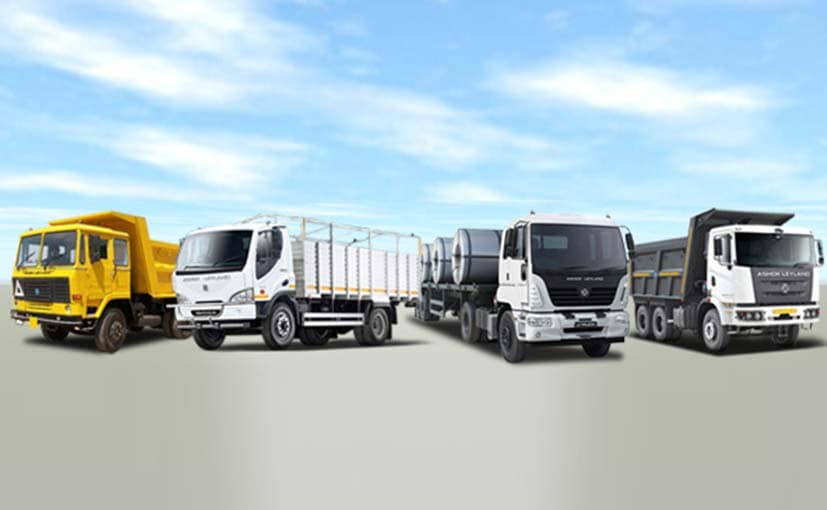
- The Supreme Court upheld the deadline for the transition to BS-IV
- Sale or registration of BS III vehicles will not be allowed from 1 April
- The industry has unsold stock of nearly 8 lakh BS III vehicles
The Supreme Court upheld the deadline for the transition to BS-IV, ruling that sale or registration of BS III vehicles will not be allowed from 1 April, 2017. The apex court said that public health was more important than other considerations including commercial interests. Earlier this week, the Centre had backed auto manufacturers' plea for leniency in the matter since the industry has an unsold stock of nearly 8 lakh BS III vehicles. The companies argued that they believed the 1 April deadline was to cease the manufacture of BS III vehicles, and not their sale and registration. For more details, read our list of ten things you need to know about the BS III ban.
Vinod K. Dasari, President, Society of Indian Automobile Manufacturers (SIAM) clarified the industry's stance, sayin,"Auto Industry has been ready with BS4 manufacturing since 2010. However, the sale of BS4 vehicles was not possible, nationwide, due to lack of BS4 fuel. Auto Industry is law abiding and is in full compliance with the emission norms set by Government that stipulates date of "Manufacturing". The historical implementation of emission norms also reinforces the current law that stipulates "manufacturing". Auto Industry has had the capability of making BS4 vehicles since 2010, but lack of proper BS4 fuel prevented it from selling such vehicles, nationwide. Running a BS4 vehicle with BS3 fuel can cause severe problems to some vehicles."
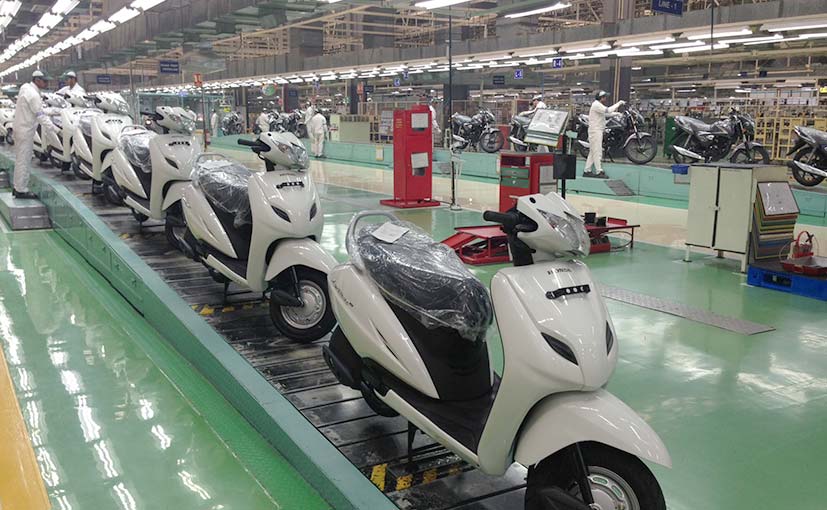
He further underlined the need for a 'stable and predictable' policy, saying, "While no one pushed for BS4 fuel availability for 7 years to change over faster, this sudden decision - just a few days before the changeover - is rather unfortunate as it causes undue stress on the entire industry, and causes loss of jobs. Auto Industry, anywhere in the world, requires a stable and predictable policy which allows for long term planning and investments."
While some manufacturers such as Maruti Suzuki and Hyundai had already switched to BS IV car models a while ago, the ban on BS III vehicles is expected to make a significant difference to the ones who were still making that transition. Tata Motors, in a statement, said, "The decision by Hon'ble Supreme Court to ban sale of all BS III vehicles from April 1, 2017 is an unexpected and unprecedented move that will have a material impact on the entire automotive industry, OEM's and dealer network. The industry had planned the current transition into BSIV in line with the accepted past practice of stopping production of earlier emission standard vehicles effective from the transition date. In the context of this previous experience, this decision by the apex court is a 'penalty' to the entire automotive industry." It goes on to add, "We have been producing BSIV compliant vehicles across our entire product range of passenger and commercial vehicles and are fully BSIV ready with effect from April 1, 2017."
Other companies such as Ashok Leyland, Daimler India Commercial Vehicles, and Hero MotoCorp have stated that the ban and the transition will very little effect. Pawan Munjal, Chairman, Managing Director & CEO, Hero MotoCorp, said, "Hero MotoCorp, the leading two-wheeler manufacturer, recognizing the need of the hour, carefully planned a proactive move to switch from BS III to BS IV compliant products across all our range well in time and have been producing only BS IV compliant products since one month before the given deadline. We have reduced our BS III inventory significantly in the past few months with the aim to minimize our stakeholder losses."
Vinod K Dasari, MD and CEO, Ashok Leyland, said, "Ashok Leyland has been making BS IV vehicles since 2010 and has sufficient capability and capacity to make BS IV vehicles. However, since BS IV Commercial Vehicles cannot run properly on BS III fuel - and such fuel is not available nationwide - our customers continued to buy BS III vehicles. Given the current demand, majority of the vehicles in the pipeline have already been sold. Some more will be sold in the next couple of days where we have customer orders. Of the little inventory that we expect to remain beyond this, we will export them to other markets where we have significant presence and still operate on BS III norms. Finally, for any other vehicles still leftover, the Company confirms that it will be able to easily upgrade them to BS IV at minimal cost."
BharatBenz phased out BS-III and made the switch to produce only BS-IV vehicles in March. Erich Nesselhauf, Managing Director and CEO, Daimler India Commercial Vehicles, said the decision reassures the company's belief "that industry interests must go together with the interests of the society at large". He added, "The BS-IV standard will bring much needed improvements in terms of air quality, to the benefit of the people and the environment."
Latest News
 car&bike Team | Feb 2, 2026Car Sales January 2026: Six Marutis in Top 10, But Tata Nexon Takes Top SpotTata Motors sold 23,365 units of the Nexon, creating a clear gap to the Maruti Suzuki Dzire, which finished second with 19,629 units.1 min read
car&bike Team | Feb 2, 2026Car Sales January 2026: Six Marutis in Top 10, But Tata Nexon Takes Top SpotTata Motors sold 23,365 units of the Nexon, creating a clear gap to the Maruti Suzuki Dzire, which finished second with 19,629 units.1 min read car&bike Team | Feb 2, 2026Maruti Suzuki Victoris Crosses 50,000 Sales Milestone In 4 monthsThe compact SUV launched at the onset of festive season has crossed the 50,000 sales mark in about 4 months1 min read
car&bike Team | Feb 2, 2026Maruti Suzuki Victoris Crosses 50,000 Sales Milestone In 4 monthsThe compact SUV launched at the onset of festive season has crossed the 50,000 sales mark in about 4 months1 min read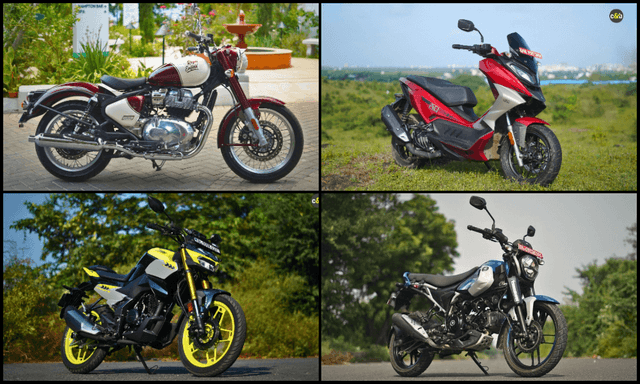 car&bike Team | Feb 2, 2026Two-Wheeler Sales January 2026: Hero MotoCorp, TVS, Royal Enfield, Suzuki Report Sustained GrowthMost brands have reported year-on-year growth in the first month of CY26.2 mins read
car&bike Team | Feb 2, 2026Two-Wheeler Sales January 2026: Hero MotoCorp, TVS, Royal Enfield, Suzuki Report Sustained GrowthMost brands have reported year-on-year growth in the first month of CY26.2 mins read car&bike Team | Feb 2, 2026Maruti Suzuki Announces Price Protection Amid Long Waiting PeriodsCountry’s largest carmaker has said that prices of the cars will not be increased for customers who have already made the bookings1 min read
car&bike Team | Feb 2, 2026Maruti Suzuki Announces Price Protection Amid Long Waiting PeriodsCountry’s largest carmaker has said that prices of the cars will not be increased for customers who have already made the bookings1 min read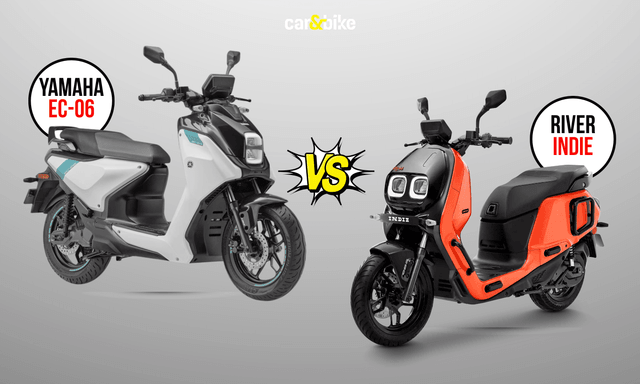 Jafar Rizvi | Feb 2, 2026Yamaha EC-06 vs River Indie: How Different Are The Two Electric Scooters?The EC-06 shares its foundation with the River Indie, and here we look at the differences between the two.3 mins read
Jafar Rizvi | Feb 2, 2026Yamaha EC-06 vs River Indie: How Different Are The Two Electric Scooters?The EC-06 shares its foundation with the River Indie, and here we look at the differences between the two.3 mins read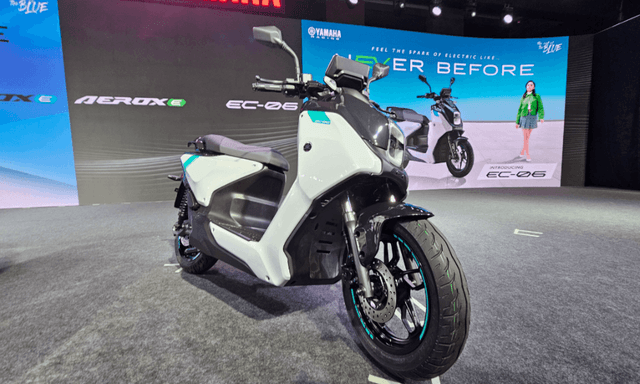 Jafar Rizvi | Feb 2, 2026Yamaha EC-06 E-Scooter Launched In India At Rs 1.68 LakhThe EC-06 marks Yamaha’s entry into the electric scooter segment in India.2 mins read
Jafar Rizvi | Feb 2, 2026Yamaha EC-06 E-Scooter Launched In India At Rs 1.68 LakhThe EC-06 marks Yamaha’s entry into the electric scooter segment in India.2 mins read
 Preetam Bora | Feb 2, 2026TVS NTorq 150 Road Test Review: Bigger, Better & More Efficient!We test the new TVS NTorq 150 out in the real world to get a sense of what it offers in terms of performance, dynamics and fuel economy.7 mins read
Preetam Bora | Feb 2, 2026TVS NTorq 150 Road Test Review: Bigger, Better & More Efficient!We test the new TVS NTorq 150 out in the real world to get a sense of what it offers in terms of performance, dynamics and fuel economy.7 mins read Bilal Firfiray | Jan 21, 2026Tata Punch Facelift Review: New Turbo Engine; Same Old SoulWith the update, the Tata Punch facelift retains its character of being a healthy runabout, which is perfect for Indian roads. But have these changes made it any better?7 mins read
Bilal Firfiray | Jan 21, 2026Tata Punch Facelift Review: New Turbo Engine; Same Old SoulWith the update, the Tata Punch facelift retains its character of being a healthy runabout, which is perfect for Indian roads. But have these changes made it any better?7 mins read Amaan Ahmed | Jan 17, 2026Bajaj Chetak C25 First Ride Review: Basic, Likeable E-Scooter For First-Time RidersThe Chetak C25, in quite a few ways, is poles apart from the larger and more powerful 30 and 35 Series models, but in its mannerisms, it is very much a Chetak.8 mins read
Amaan Ahmed | Jan 17, 2026Bajaj Chetak C25 First Ride Review: Basic, Likeable E-Scooter For First-Time RidersThe Chetak C25, in quite a few ways, is poles apart from the larger and more powerful 30 and 35 Series models, but in its mannerisms, it is very much a Chetak.8 mins read Bilal Firfiray | Jan 9, 2026Toyota Urban Cruiser Hyryder: 10,000 km Long-Term ReviewAfter spending over three months and 10,000 km with the Toyota Urban Cruiser Hyryder Hybrid, we were impressed by its real-world mileage, seamless hybrid, practical comfort, and Toyota reliability. Is it the best C-SUV then?5 mins read
Bilal Firfiray | Jan 9, 2026Toyota Urban Cruiser Hyryder: 10,000 km Long-Term ReviewAfter spending over three months and 10,000 km with the Toyota Urban Cruiser Hyryder Hybrid, we were impressed by its real-world mileage, seamless hybrid, practical comfort, and Toyota reliability. Is it the best C-SUV then?5 mins read Seshan Vijayraghvan | Jan 8, 20262026 Mahindra XUV 7XO Review: Big On Tech, Bigger On ComfortThe new Mahindra XUV 7XO is flashier, feature packed, and comes with more advanced tech. But are the changes just incremental or actually substantial?1 min read
Seshan Vijayraghvan | Jan 8, 20262026 Mahindra XUV 7XO Review: Big On Tech, Bigger On ComfortThe new Mahindra XUV 7XO is flashier, feature packed, and comes with more advanced tech. But are the changes just incremental or actually substantial?1 min read

























































































































